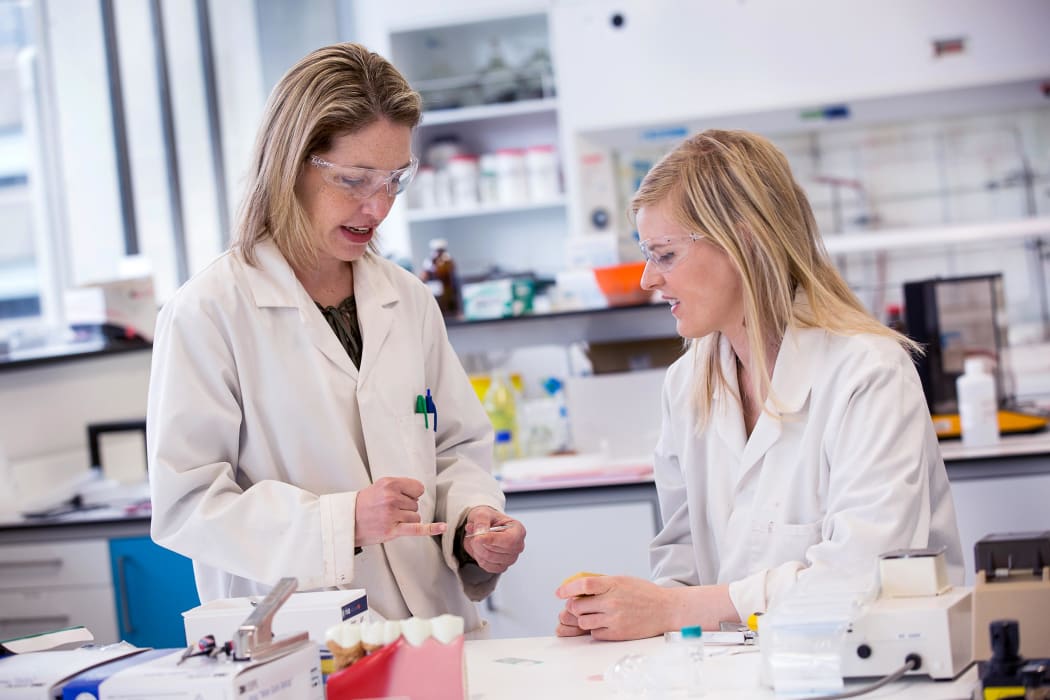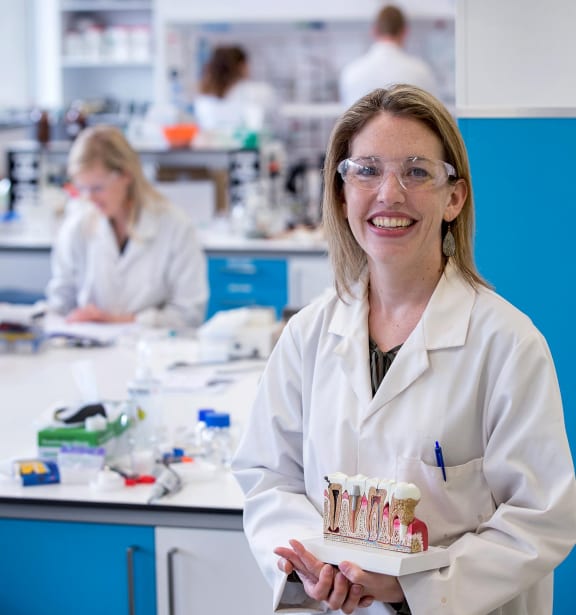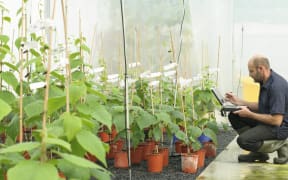A few minutes of conversation has led to a revolutionary tooth decay treatment using silver nanoparticles, and the 2017 Prime Minister’s MacDiarmid Emerging Scientist Award for the chemist working on it.

Carla Meledandri (left) with another nanotechnology researcher. Photo: University of Otago
Subscribe to Our Changing World for free on iTunes, Spotify, Stitcher, RadioPublic or wherever you listen to your podcasts
A few years ago, Carla Meledandri, a chemist at the University of Otago and the MacDiarmid Institute, went to an event organised by the university to encourage new staff members to meet and look for possible research collaborations.
The ‘science speed dating’ session gave researchers three to four minutes to explain to each other what they did, Meledandri says.
One of the people she met was dentist Don Schwass, who told her about the problems of dental disease.
She, in turn, talked about her work with nanoparticles.
“Silver nanoparticles, in particular, as you decrease their size, they become more and more antibacterial.
“So it made sense that we combined our efforts, to design and create materials containing silver nanoparticles that could be used in dentistry, to treat the bacteria that are the source of the dental diseases.”

Carla Meledandri researches nanoparticles. Photo: University of Otago
Meledandri says they're not the first to use silver in dentistry, but existing uses are either not very effective or result in significant tooth staining.
What Meledandri has done is develop ways of stabilising silver nanoparticles by stabilising their surfaces and adding specific molecules that allow them to remain either colourless or a very pale yellow.
These molecules also allow the silver nanoparticles to be incorporated into a wide variety of materials.
“Depending on the molecule we put on the surface …. we can put them into a liquid, we can put them into a gel or into a cement material.
“By understanding that fundamental underlying nanoscience, this allows us to develop a wide variety of different materials.”
These different applications give dentists the option to choose the best material for the issue they are treating, Meledandri says.
She and Schwass have recently created a company called Silventum Limited to commercialise their products.
The 2017 Prime Minister’s MacDiarmid Emerging Scientist Award comes with a $200,000 prize which Meledandri plans to spend employing post-doctoral researchers for a new strand of work involving clean energy.
Nanoparticles are well suited to capturing and storing hydrogen and carbon dioxide, and she is keen to advance this work, as she likes solving real-world problems that affect people on a daily basis.
2017 Prime Minister’s Science Prizes
The 2017 Prime Minister’s Science Prize has been awarded to a large team of scientists at Plant and Food Research for their long-running, multi-disciplinary effort to find successful solutions to the kiwifruit Psa crisis.
Damian Christie, from SciFilms, has been awarded the 2017 Prime Minister’s Science Communication Prize to set up the Aotearoa Science Agency, to create science-based video stories.
Science to solve kiwifruit crisis a winner
A 100-strong team of researchers from Plant and Food Research have won the 2017 Prime Minister's Science Prize for using science to solve the kiwifruit PSA crisis. Audio



